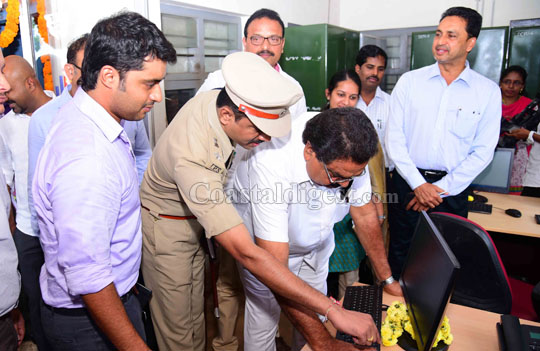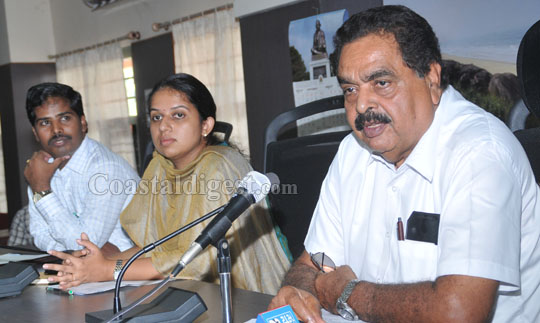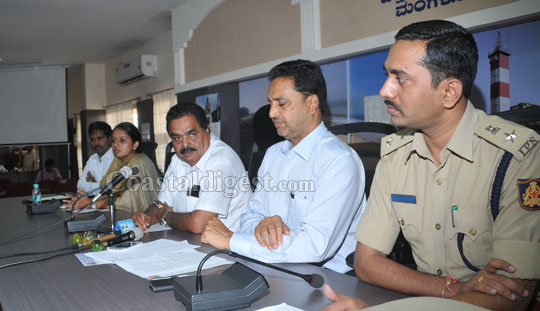Apr 10: The UAE reported 331 new coronavirus cases - through extensive testing - and two deaths late Thursday night.
The UAE conducted over 40,000 coronavirus tests over the past two days across various segments of society, including citizens and residents, using latest state-of-the-art-technology in line with the Ministry of Health and Prevention's plans to intensify Covid-19 screenings to contain the spread of the virus.
The Ministry also revealed that two patients suffering from Covid-19, an Asian national and an Arab, had died due to complications caused by the virus. Both of the deceased had prior chronic illnesses. The total number of deaths has now reached 14.
UAE announced on Thursday that places of worship will be closed in the country until further notice - amid the coronavirus situation. Authorities decided to extend the closure of mosques, churches and other places of worship in the UAE until further notice for the safety of community members, Wam reported. The measure has been taken to prevent the spread of Covid-19 in the country.
The decision was taken in coordination with the National Authority for Emergency and Disaster Management, the General Authority for Islamic Affairs and Endowments, federal, local religious bodies and health authorities in the state.
Residents face deportation for breaking rules
People who repeatedly flout 'stay at home' measures and endanger others' lives are inviting harsh punishments including deportation, a senior police officer has said.
"The UAE's Attorney-General has already announced the fines and punishments for breaking rules on social distancing and curfew restrictions. Repeated offenders or those who commit crimes that have a 'snowball' effect on the society will be fined, jailed and deported at the end of their term," said Col Saeed Al Hajeri, head of the Cyber Crime Department at Dubai Police, in an exclusive interview with Khaleej Times.
Al Hajeri said the Dubai police are tightening the noose against violators by resorting to 'naming and shaming' them.
The officer said 'reckless residents' will face serious consequences as they are not allowing the government to serve the people.i.
Movement permit not to be misused
The officer said residents should not misuse the movement permit introduced by the Dubai Police and those who go out without a permit will be fined on their Emirates ID. Al Hajeri said they expect residents to be highly responsible. "Those who are exempted from taking movement permit can use the company letter to go to work but not for other purposes. You cannot fool the system by obtaining a permit for buying medicine and then going out to visit your sister or brother."
Social media as a double-edged sword
Warning people against circulating rumours and videos mocking authorities, the he said people should instead use the time to be productive or creative.
"We encourage people to use this time to learn new skills and not create scams and endanger the society. This is a difficult time and it will pass. What is more important is what you gain out of this."
Col Al Hajeri said the Dubai Police are aware that many people are using social media as a positive tool and encourage them. "We encourage that, and want people to use social media for positive messaging, to spread awareness about personal hygiene, social distancing and various precautions to be followed."
13 new drive-through coronavirus test centres open across UAE
Thirteen new drive-through testing facilities for Covid-19 have been opened across the UAE over the recent days. The Abu Dhabi Media Office on Thursday reported that under the directives of His Highness Sheikkh Mohamed bin Zayed Al Nahyan, Crown Prince of Abu Dhabi and Deputy Supreme Commander of the UAE Armed Forces, 13 additional Covid-19 drive-through testing facilities were opened in 10 days, in addition to the centre previously opened in Zayed Sports City in AbuDhabi.
According to authorities, more than 12,000 people have been tested since the centres opened .
The examination process begins by booking an appointment in advance by calling the 8001717 Estijaba centre, or through the SEHA smart application, for an initial assessment.
Priority will be given to those with symptoms, senior citizens, pregnant women and those who suffer from chronic diseases.
Precautionary examinations costs Dh370, and payment will be done electronically through the SEHA application.
50,000 workers to be screened in a month
A massive initiative has been launched by healthcare provider Right Health and Al Futtaim Health's HealthHub to screen 50,000 workers for Covid-19 within a month.
Out of the 58 facilities across the UAE, 33 primary health centres of the Right Health are located at the workers' accommodation areas in Jebel Ali, Sonapur and Al Qouz.
"We will be working with businesses across the UAE to ensure their workforces stay safe and healthy. It is essential that private healthcare providers do everything they can to support the government's efforts to combat the Covid-19 pandemic. The objective of this campaign is to screen as many people as possible.
Crime falls by 96% in Sharjah
A massive drop in crimes has been observed in Sharjah after the implementation of Covid-19 precautionary measures. The crime rate has declined by 96 per cent, according to the Sharjah Police. Only 48 cases were reported in the emirate during this period compared to 717 cases registered last year.
Dispose of masks, gloves safely, say police
Motorists caught throwing face masks and gloves out of their vehicle windows will be fined Dh1,000 and six black points will be registered against their driving licences, the police have warned. The Abu Dhabi Police on Thursday said some people have been throwing used masks and gloves out of the car windows, violating traffic laws. "The masks and gloves pose a threat to public health and the environment. They may have been contaminated and lead to the spread of diseases," the police said in a statement. The police also noted that adhering to precautionary measures that prevent the spread of communicable diseases is everyone's responsibility.
Medical experts explain UAE's high Covid-19 recovery and low death rates
Compared to global rates of Covid-19, the UAE has been showing very high recovery and very low death rates.
According to statistics made available on the World O Meter, the Covid-19 death rate in the UAE is only 0.5 per cent of the total 2,659 infected.
Khaleej Times reached out to UAE doctors and medical experts who have attributed this phenomenon to the UAE's high healthcare standards, the country's predominant younger population, and residents' compliance to the Stay at Home guidelines.
'UAE age structure plays a role'
However, Dr Standford said: "Although death occurs at all ages, there is a predominance of the elderly. The age structure in the UAE is completely different from most countries outside the GCC as there is a predominance of young expatriates here under work permits.
He added: "Most (expatriates) will leave the country by the age of 60. There is therefore only 1.5 per cent of residents aged 65 or more. Compare this with a country like the UK where the equivalent number is 18.2 per cent."
Early intervention
Dr Jacob Cherian, specialist internal medicine, Medcare Medical Centre Marina and medical director for Medcare Medical Centres, attributed early intervention and intensive testing as one of the main reasons for the UAE's faster recovery rates.
"Compared to other countries, the UAE adopted early intervention measures. The UAE closed schools and limited social gatherings when there were hardly any cases," he said. Compliance from residents and a relatively younger and healthier population are other reasons for the lower death rates and high recovery rates, according to Dr Jacob.
Pakistan extends suspension flight operations till April 21
The Pakistan government has extended the suspension of domestic and international flight operations in the country until April 21 in a bid to contain the coronavirus spread, said a notification issued by the Civil Aviation Authority (CAA).
In its last notification, the CAA had said that diplomatic, special/cargo flights and flights of national carrier to/from Pakistan holding special approval from the competent authority for transporting stranded passengers would be exempted from the ban.








 Welcoming the move Dr Arathi Krishna told coastaldigst.com that Indians stranded in any foreign country can utilize this facility. "Initially, I was approached by Mr Zakaria and Mr Sheik who wanted chartered flights to help their employees fly back to India. I asked them to write to the Indian Ambassador in Saudi Araia Mr Ausaf Sayeed. Then I requested the ambassador to forward the request to Joint Secretary Dr Nagendra Prasad, who is in charge of gulf division in the Ministry of External Affairs, and then to Secretary on charge of Gulf and then I requested Secretary of Economic Relations Mr T S Tirumurti who was also in charge of Gulf to follow this up," she said.
Welcoming the move Dr Arathi Krishna told coastaldigst.com that Indians stranded in any foreign country can utilize this facility. "Initially, I was approached by Mr Zakaria and Mr Sheik who wanted chartered flights to help their employees fly back to India. I asked them to write to the Indian Ambassador in Saudi Araia Mr Ausaf Sayeed. Then I requested the ambassador to forward the request to Joint Secretary Dr Nagendra Prasad, who is in charge of gulf division in the Ministry of External Affairs, and then to Secretary on charge of Gulf and then I requested Secretary of Economic Relations Mr T S Tirumurti who was also in charge of Gulf to follow this up," she said.
Comments
I , physically handicapped person 10th pass I am searching for a job plz help me kindly
Add new comment